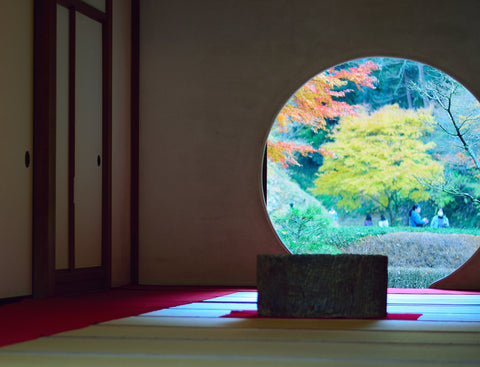4 Principles Of Chado
Chado ( The way of Tea) is a Japanese cultural practice involving the preparation and serving of Matcha to a guest, primarily influenced by the Zen Buddhism and it is based around 4 core principles: Harmony, Respect, Purity and Tranquility ( Wa, Kei, Sei and Jaku). By practicing Chado, the aim is to experience and integrate these principles into one's daily life.

Wa (和) or “harmony” embodies the feeling of oneness with nature and people. It is expressed through a positive interaction between host and guest, guest and guest, and more in general between man and nature. It extends outside of the tea room through a way of living that is free from desire to impress, compete and dominate, enabling a merging and transcending of individual egos and roles.

Kei (敬) or "respect" is the ability to understand and accept others, even in those situations when one does not agree with another. By being kind and humble towards others we give respect and encourage others to do the same. Respect is also extended towards utensils and objects, as a result not only of the human effort invested to produce them, but also to the simple fact that they came to existence through Nature.

Sei (清) or “purity” refers to the ceremonial purity of the setting and utensils but, most importantly, to the ability to treat oneself and others with a pure and open heart.
This purity is not one of absolute cleanliness but one of pure intention. From the moment of intention-setting, through the process of purification and cleaning of the environment, up to the enjoying and admiration of one's effort, one's heart and soul are also being purified.

Jaku (寂) or "tranquility", the fourth principle, is not really a goal for which to strive but a natural result of following the first three principles of harmony, respect and purity.
This tranquility is not to be confused with a sort of dreamy psychological state. Instead it represents the dynamic force of one’s innermost being that, stemming from the heart-felt realisation of the uniqueness of each moment, embraces and infuses the practice of Tea by giving significance to it.
Experiencing the four principles in the mundane act of preparing and drinking tea can extend to all that one does. Through the practice of Chado, one attempts to immerse themselves in a series of movements of serving tea, learning to appreciate each moment and carefully finishing what they are doing instead of hurrying on. The ultimate aim of Chado is to develop the ability to experience a deep sense of satisfaction and appreciation through the simple act of drinking tea.
By developing and practising this ability through tea we may also find ourselves extending this feeling of satisfaction and appreciation towards a lot of other daily activities, and perhaps even towards our relationships.
